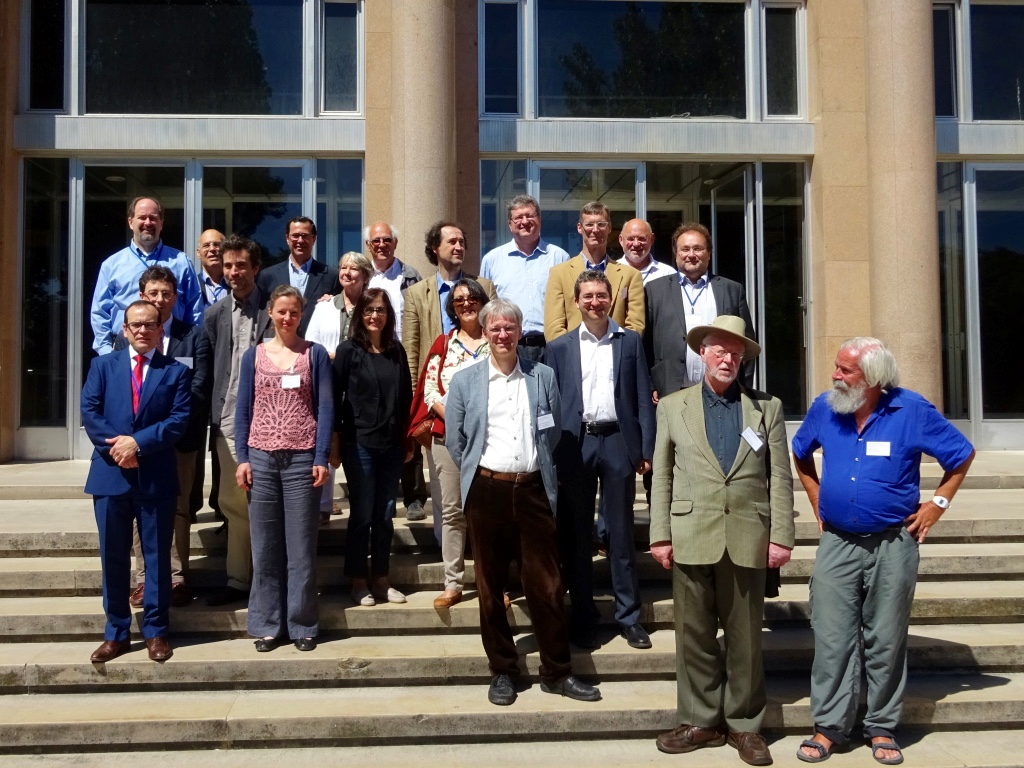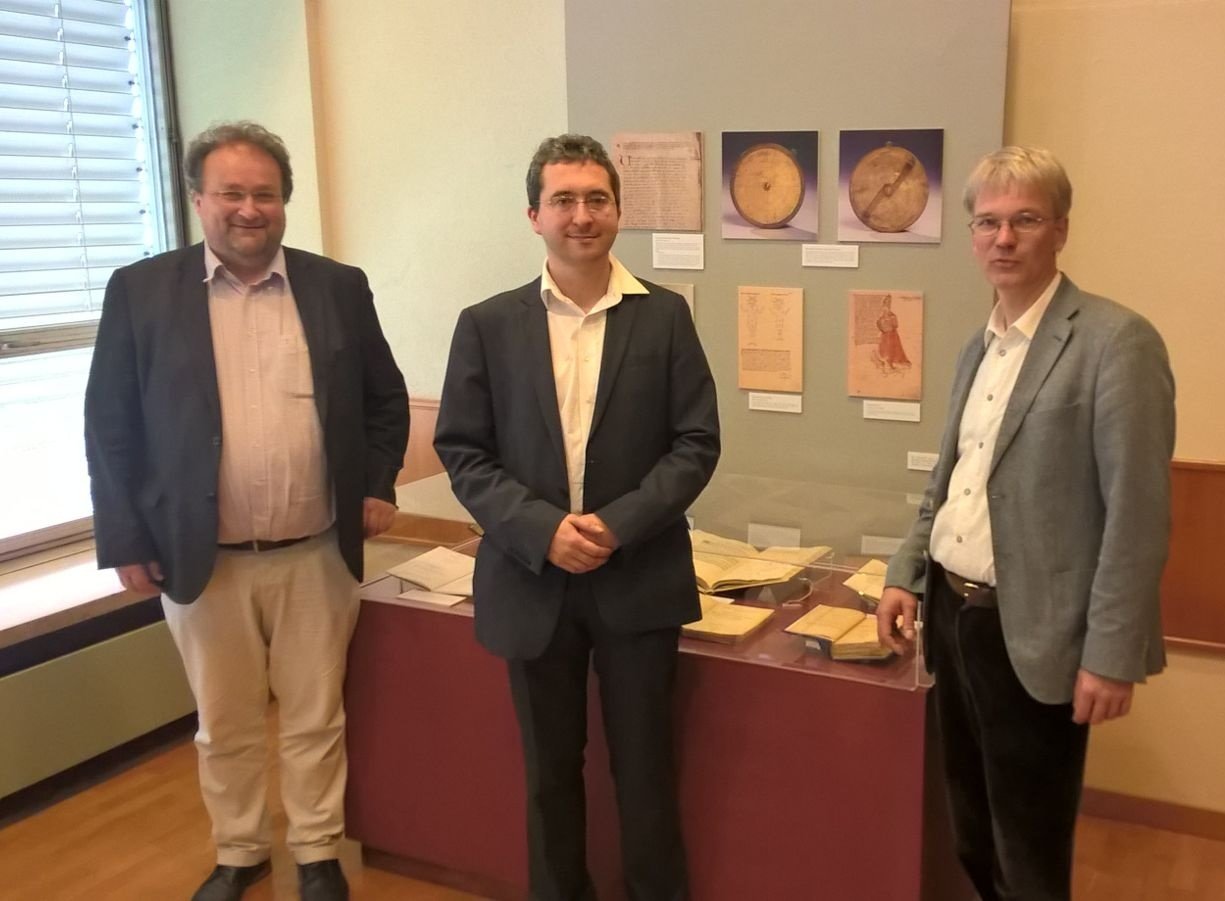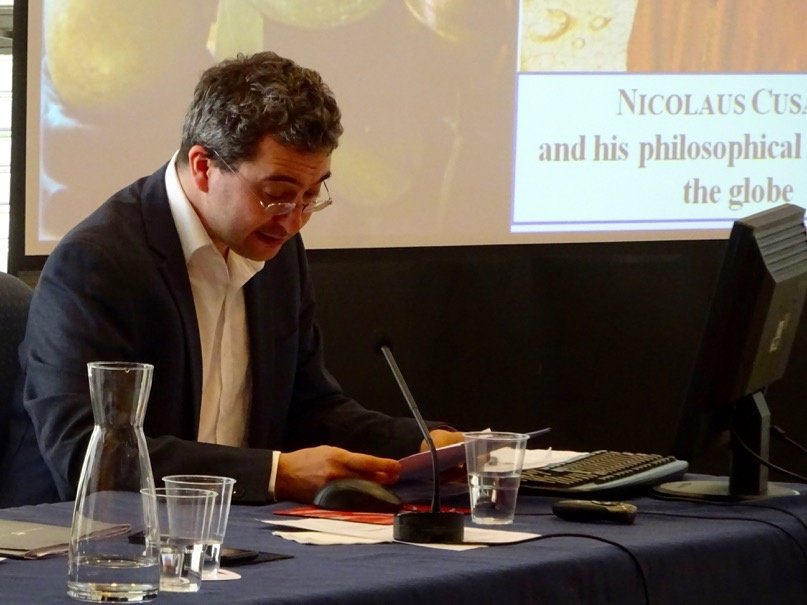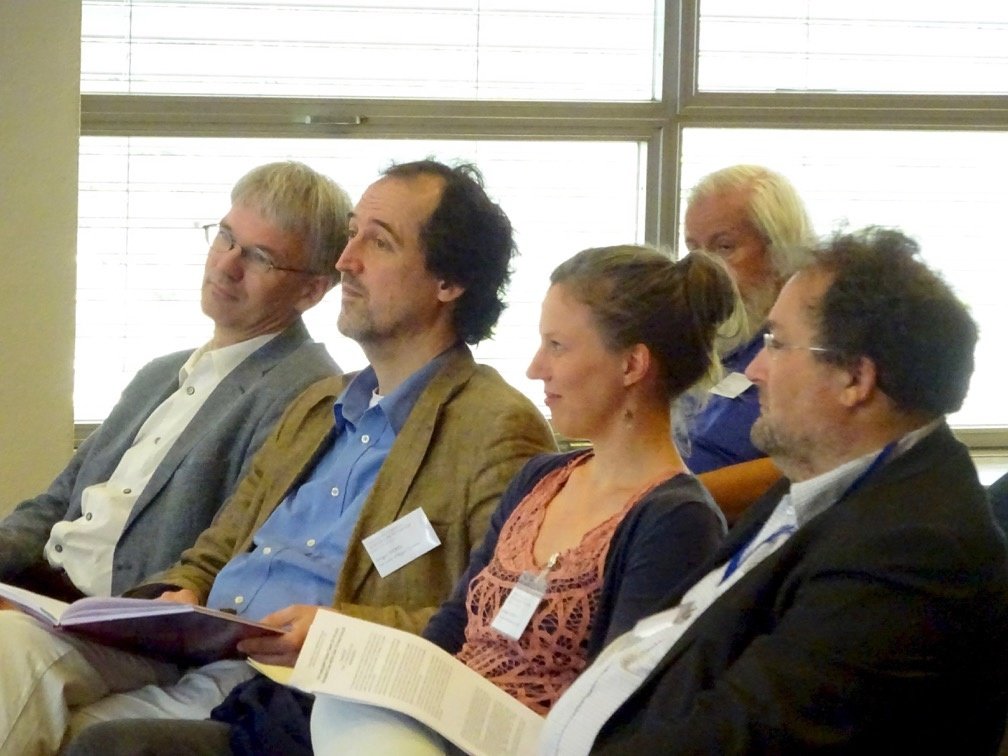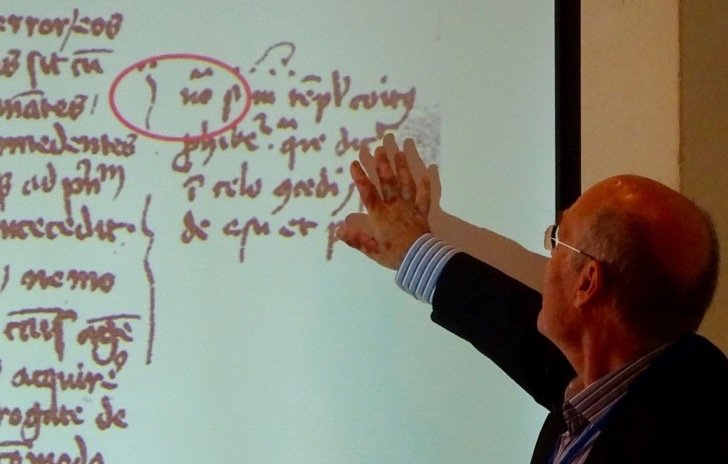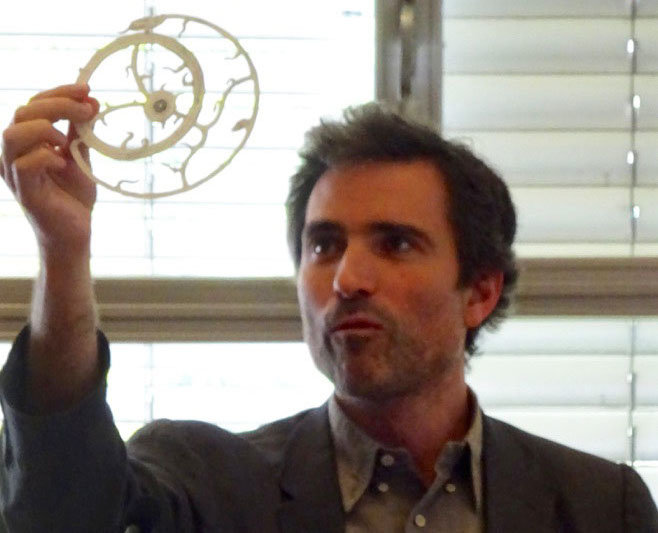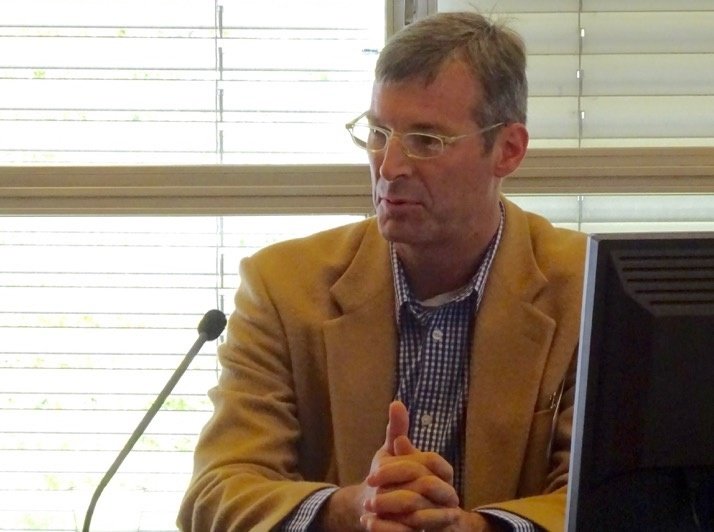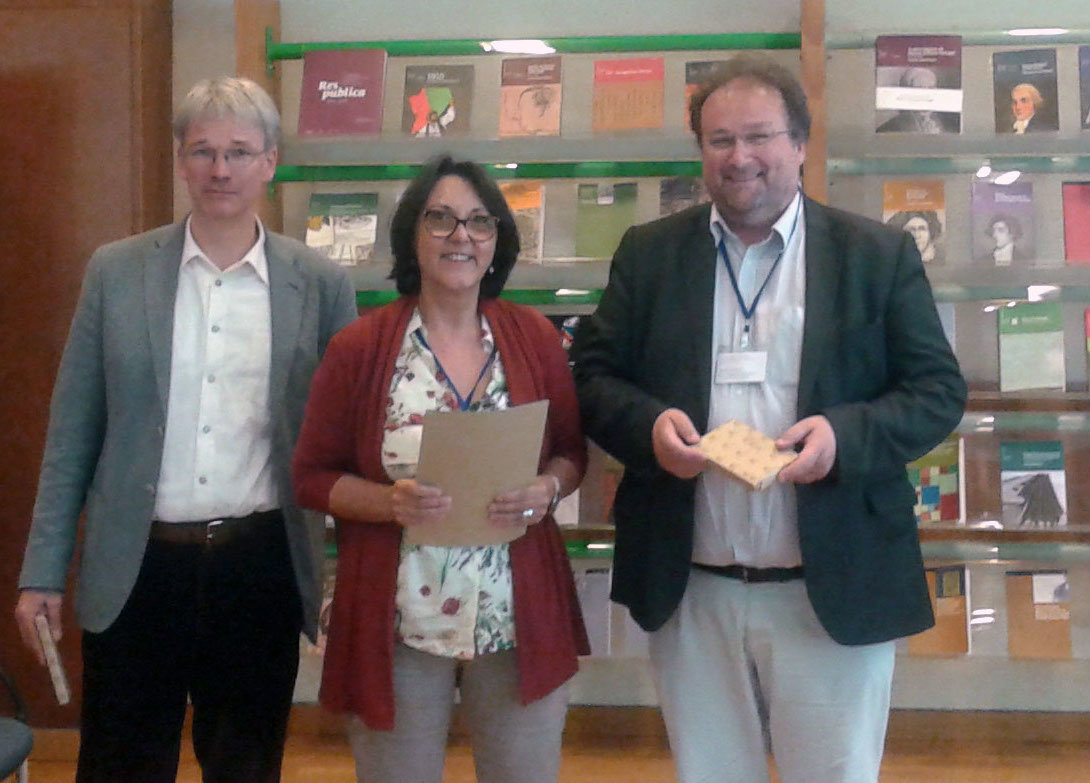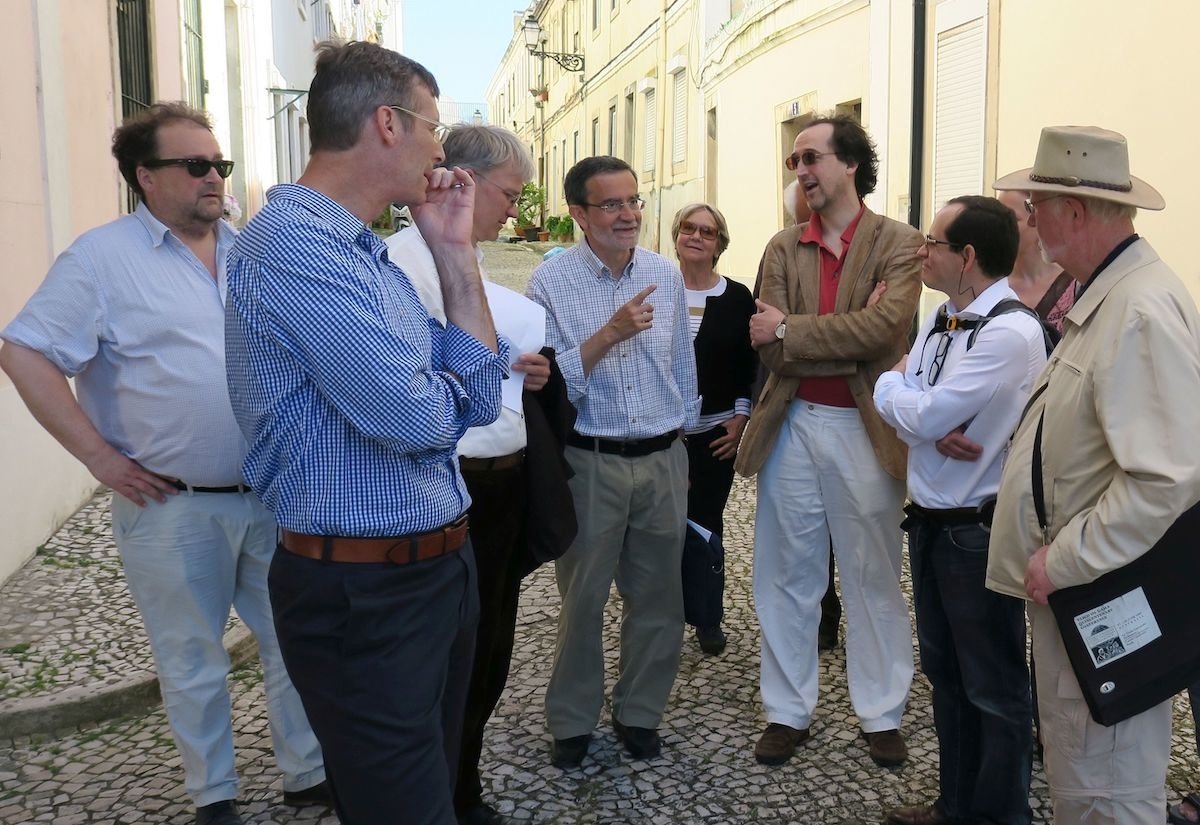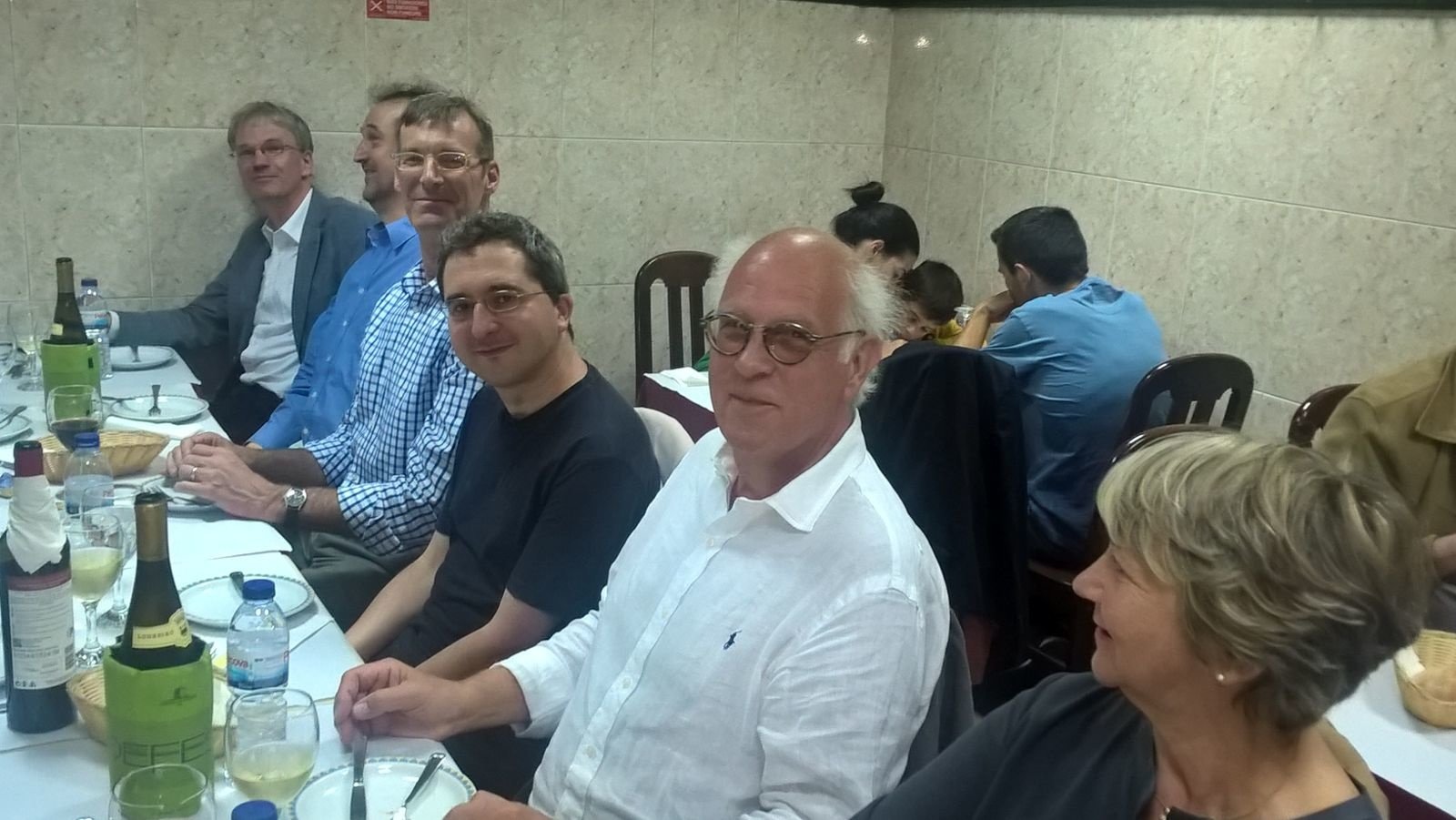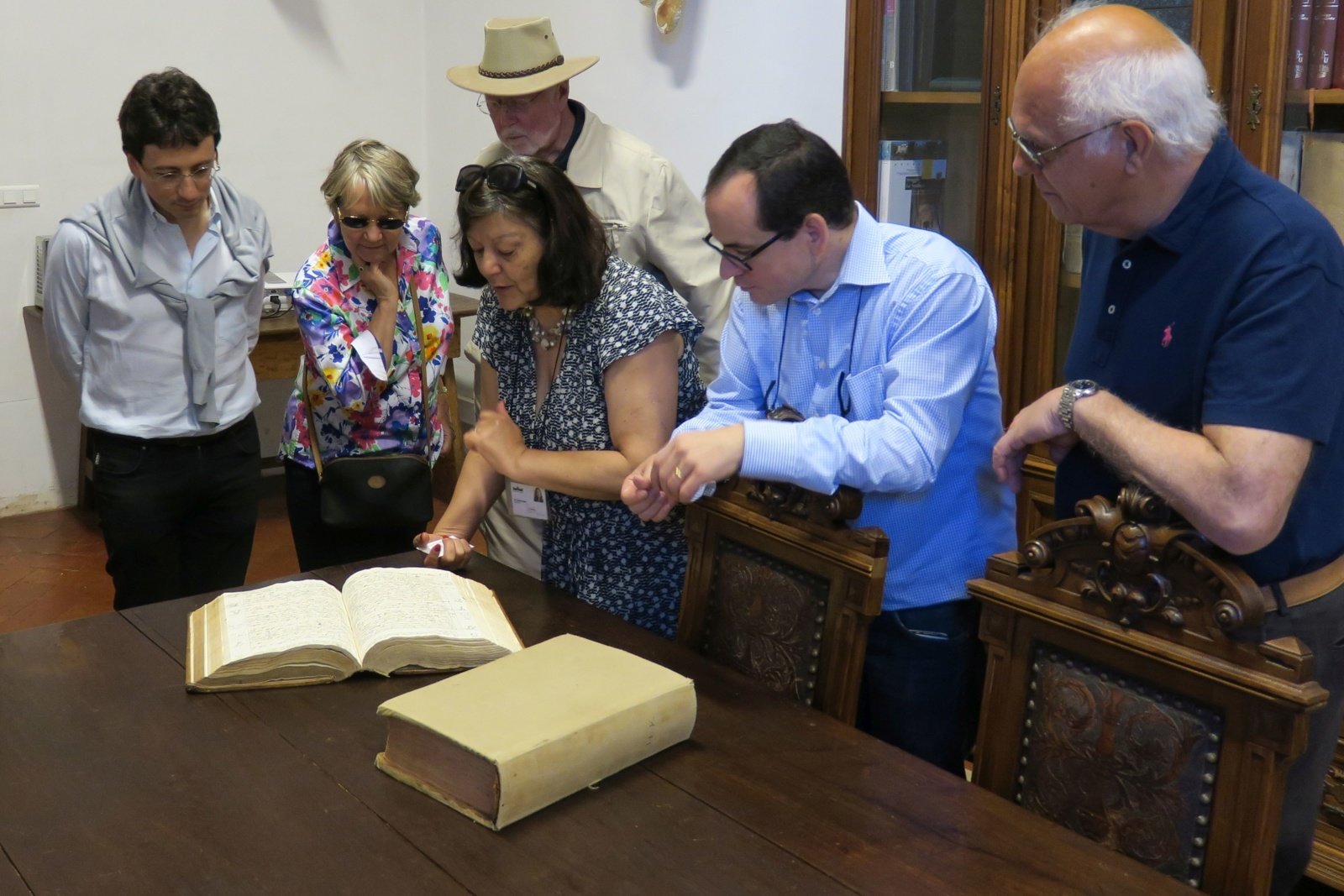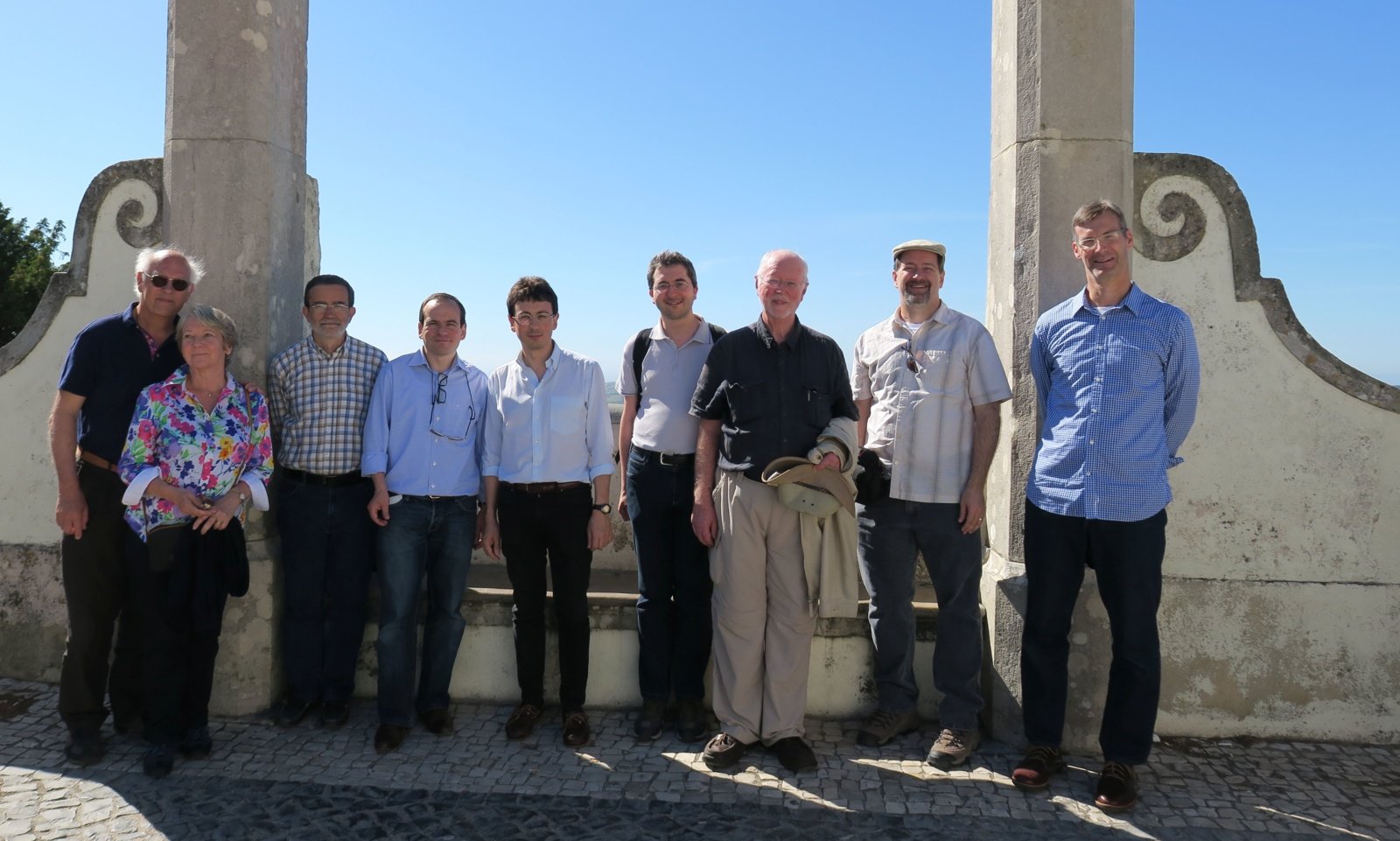Universum Infinitum. From the German Philosopher Nicolaus Cusanus (1401–1464) to the Iberian Discoveries in the 15th Century: Ocean World in European Exploration
Biblioteca Nacional de Portugal, Auditório
17 June to 18 June 2016
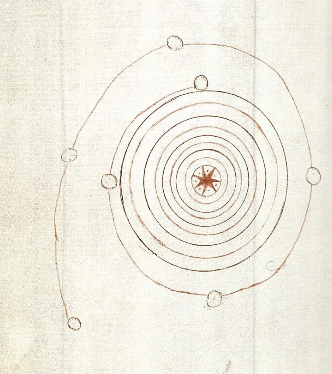
About the event
The German cardinal Nikolaus von Kues (Nicolaus Cusanus/Nicholas of Cusa, 1401–1464) is mostly known today for his elaborate philosophical work. His interesting life and voluminous opus is well documented (cf. Nicolai de Cusa opera omnia et auctoritate Academiae Litterarum Heidelbergensis ad codicum fidem edita and Acta Cusana): As one of the first proponents of Renaissance humanism Nicolaus was not only a key figure of the 15th century, with strong interest in theology, philosophy and canon law, but also in astronomy, mapmaking and particularly in cosmography. But what did the term “cosmography” mean in those days? And in what sense was the universe considered infinite? What about the intellectual and personal connections of Cusanus to the Iberian Peninsula, where scientific and technological knowledge was exchanged with the Holy Roman Empire? What role does Cusanus play in the history of science of the early modern period, on the eve of European Exploration to the Ocean world and its repercussions? And does his work already reflect the intellectual reception of the New World in Europe, which included also a spiritual expansion of the Christian world?
Our international workshop “Universum Infinitum”. From the German Philosopher Nicolaus Cusanus (1401–1464) to the Iberian Discoveries in the 15th Century: Ocean World in European Exploration will try to give answers to some of these questions. In connection with this, the interdisciplinary conference will deal with a variety of aspects of the 15th and 16th centuries: contemporary cartography, cosmographical view of the world, humanistic thought of philosophical/theological works and natural history. For this meeting we will bring together international scholars, who are all concerned with Nikolaus von Kues and his time in a broad sense. Our speakers are experts in various areas: philosophy, (church) history, history of discoveries, theology, natural sciences, mathematics, history of instruments, cartography, cosmography and astrology – the best asset for an interdisciplinary workshop.
The papers will be given in German, Portuguese, French or English; each presentation will be allotted 20 minutes, sufficient discussion time for the symposium participants is added. The international workshop is organized by Thomas HORST (Postdoc at the Interuniversitary Centre for the History of Science and Technology, CIUHCT, University of Lisbon) in cooperation with Prof. Dr. Harald SCHWAETZER and Dr. Matthias VOLLET (both: Kueser Akademie für Europäische Geistesgeschichte and Cusanus-Hochschule, Bernkastel-Kues/Germany). It will take place over two days (Friday and Saturday, morning and afternoon).
Scientific programme
Download programme (pdf / 558.16 KB) Download book of abstracts (pdf / 156.30 KB)Local Organising Committee
- Thomas Horst (CIUHCT, University of Lisbon)
- Samuel Gessner (CIUHCT, University of Lisbon)
- Maria Joaquina Esteves Feijão (Map Room, BNP)
- João Carlos Garcia (CIUHCT, University of Porto)
Reports
- German Report: "Tagungsbericht von Thomas P. Brysch (Viana do Castelo, Portugal): "Als das Universum unendlich wurde" auf der Homepage des Klaus Reinhardt Instituts"
- English Report: "Report by Thomas P. Brysch (Viana do Castelo, Portugal) at H-Soz-Kult"
- Portuguese report: "Sinopse do workshop “Universum Infinitum”, 17–18 Junho de 2016 Biblioteca Nacional de Portugal, Lisboa"
- English (Australia) report. "Robert King: Universum Infinitum at the Biblioteca Nacional de Portugal, in: AAMH [The Australian Association for Maritime History] Quarterly Newsletter 141 (September/October 2016), p. 4."
- English (Australia) report. "Robert King: Universum Infinitum at the Biblioteca Nacional de Portugal, in: Map Matters 29 (2016), p. 20 [circulated to members of Australia On The Map (AOTM)]"
EVENT coverage
Photos taken by Thomas Paul Brysch, Karl Galle, Thomas Horst and Matthias Vollet.
